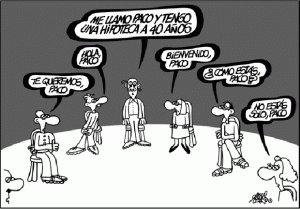RELEVANT RULING FOR HOMEBUYERS OF NON-COMPLETED PROPERTIES WITHOUT BANK GUARANTEES

In the last few years, it has become quite common the significant number of homebuyers who have purchased off-plan properties and paid large sums of money on account for their future homes, however, the developer has never completed nor handed them over. Consequently, the advanced money has been lost in many cases, because the developer may have gone bankrupt and lost all assets to refund these amounts to them.
Spanish Government passed in 1968 the Law 57/1968 dated 27th of July on the receipt of sums paid in advance prior to the construction and sale of homes. This was aimed at stopping several cases of homebuyers who lost their money paid for properties which never were built.
Spanish Law 57/1968 is still in force and solicitors, who are specialised in this issue, know the regulations for homebuyers’ protection in respect of sums paid in advance to developers for off-plan or under construction properties prior to their completion. However, the most relevant point at this moment is the judgment argumentation set out for the court proceedings where 46 homebuyers without bank guarantees securing advanced payments, made a legal claim jointly and severally to the bank and the developer demanding the total amounts paid, because the construction works were never completed. The judgment was pronounced by a court of first instance of Albacete on the 08/06/2012 and was confirmed by the Provincial Court on the 11th of February of this year.
The aforementioned judgment ordered the bank to refund all amounts of money paid by the homebuyers, considering that it was jointly and severally liable together with the developer, pursuant to the interpretation of Articles 1 and 2 of the abovementioned Law of 1968, Article 4 of the Spanish Ministerial Order of 1968 and the First Additional Provision of the Law 38/1999 on building regulations.
Although the bank was not a party on the sale agreement and did not either issue bank guarantees for homebuyers’ payments on account, the main line of argument of this judgment to consider the bank to be jointly and severally liable is that this bank knew about these payments in the developer’s account and was aware that these amounts were paid for the purchase of homes in a property development. As a result of that, the bank did not comply with the obligations provided by Law 57/1968 and committed a banking malpractice, pursuant to the interpretation of Article 1.2 of this Law, as the developer should have been required to open a special account where depositing its funds apart from any other amounts aimed at the construction of the properties. In addition, the bank should have not permitted these deposits in ordinary accounts, and particularly when this bank was the only financial entity financing the development and profited from this real estate business.
This judgment entails a court action to recover the money for those homebuyers without bank guarantee securing the amounts paid on account to developers, because, if appropriate, they could bring an action for joint and several liability against the bank where the developer’s loan was granted, where the payments were deposited and where the developer operated. Thus, homebuyers will have better chances to recover the sums paid, considering that there are already many judgments where developers has been condemned to pay, but court orders cannot be enforced because of their insolvency, while banks are always solvent.
Author: Gustavo Calero Monereo, C&D Solicitors (lawyers)
Torrox-Costa (Malaga/Costa del Sol/Andalucia)






